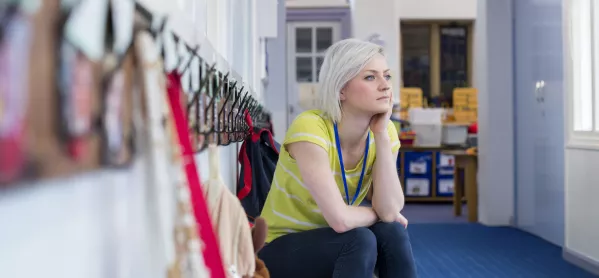You’ve attended all the lectures, processed all the theory and now you have your placement school. Your first time as “the teacher” in front of a class of young people eager to learn, and perhaps eager to push the boundaries. Excitement, apprehension and a sense of the unknown for what’s to come.
In Scotland (and I’m sure elsewhere) there are all sorts of phrases you may have heard but which have no real meaning until you get into the place where the real action takes place - the classroom. Think of HGIOS4, NIF, GTC standards, Girfec, differentiation, closing the attainment gap. It can make the whole experience seem a bit daunting, but schools welcome students and are crucial in shaping the standard of our profession’s new recruits.
So, if you are preparing for a placement soon after the summer, here is some advice for things you can do yourself to weather the storm at the start:
Advice for new teachers
1. Establish what type of teacher you are going to be - the values that you characterise are key to establishing your presence and developing relationships with young people and staff. Make sure your actions mirror your words.
New to teaching: Four top tips for every newly qualified teacher
A depute head’s view: What would your school walls say if they could talk?
CPD: You can get a proper holiday - and squeeze in some CPD
Professional development reviews: How to make them work
Long read: How to set teacher CPD free
2. Soak everything up - observe other members of staff, team-teach, get out of your department and faculty to see other subjects/areas of the school. Seeing others in action can show you how to execute and sequence all those ideas you have bobbing around in your head. Establishing the pace and pitch of a task is key to a successful lesson.
3. Try out new ideas - although teachers and departments may have courses and activities they wish you to teach, we are also keen to see what fresh ideas you can bring to the topic. The first few years of teaching should be filled with creative ideas and an eagerness to try out new things you’ve seen on Twitter. Don’t simply recreate what is already there. Seek to enhance it, approach it from a different angle. This is the best CPD you will ever have. The experience to develop and execute your own lessons.
4. Expand your knowledge - only you know what you know, and what you don’t know. Familiarise yourself with the topics you will be teaching. If they are new to you; seek opportunities to learn about them. Sit down with colleagues, ask to borrow some textbooks or get suggestions for suitable websites. If you are confident with the content you are teaching, that will be evident. Every day is a school day!
5. Communicate with your staff mentors - speak to any teacher and they will be able to recall a lesson or two that didn’t go to plan, a pupil they felt they let down or an activity that just didn’t work despite their best efforts and planning. It’s OK the intended outcome on the lesson plan doesn’t work but evaluate why. Get feedback from colleagues, think about how you could modify it for next time.
The reality of being in a classroom: imagine a browser with 4,956 tabs open at the same time. Managing up to 30 young people, all of whom have different needs, some who don’t want to be there, yet are secretly glad of your everyday presence.
Teaching is a vocation - the chance to work with young people to influence the people they will become and shape the paths they will take remains the single reason I love my job and enjoy going to work each morning. If you still feel the same after reading this, we can’t wait to have you join us.
Gillian Freeland is faculty principal teacher of social subjects and RMPS (religious, moral and philosophical studies) at Alva Academy in Clackmannanshire

